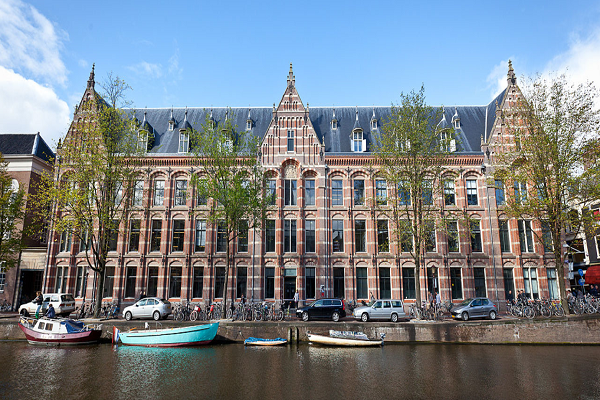University of Amsterdam: Follow-up Carte Blanche: How Techy is Sustainability
Frank Nack, lecturer and, at the time, programme director of the Master’s programme in Information Studies, looks back together with us: “As I became Lecturer of the Year in 2018, I was astonished to see that the winning prize was to develop a new interdisciplinary course. My idea was to generate a fluid, interactive learning environment in which the students and I could change between different forms of learning depending on their needs.”
Sustainability and technology
Nack continues: “The aim was to investigate sustainability, with the focus on how far technology can facilitate sustainability. The course How Techy is Sustainability, therefore, concentrates on questions such as: What is the role of technology and what can it provide to help build a sustainable society? How far can a sustainable society go and under which circumstances is technology a necessary part?”
Constant exchange of ideas
In the first 5 weeks of the course, the core aspects are investigated. Adam Hollanek, Bachelor’s student in Economics, reflects: “At each lecture, a Socratic discussion of the topic took place, in which different definitions and ideas were confronted. Frank was always willing to jump in and move the discussion forward and help develop the ideas of the students.”
The students then formed groups to define their problem space, investigate what sustainability could mean in that domain and how technology could be used to enhance that dimension. Nack elaborates: “The constant exchange of ideas and findings in the seminars allowed students to learn from each other and hence further enhance their own point of views.”
Hollanek explains: “My group and I chose to examine microplastic pollution. I wrote a paper on the impact of microplastic pollution in water on organisms within aquatic biomes, and how new filtration technology can address the issue.”
Across domains borders
Unfortunately, the course did not happen fully as imagined, as the outbreak of the coronavirus resulted in working online only. Nack reflects: “This generated a more asynchronous environment. However, we all adapted rather fast and once the students got the hang of what various levels of reflection could mean for their understanding, the course went rather well. An advantage certainly was that the IIS Honours students are already organised in an interdisciplinary fashion, meaning they are used to discussing across domain borders. The students also managed to incorporate insights from other projects if there was overlap.”
I thoroughly enjoyed the free-form nature of this type of learning, and I was able to develop my interests in sustainability; the course actually inspired me to reconsider the type of Master’s programme I want to take, as I am now considering economics masters programmes that specialise in sustainable development.
Adam Hollanek, student
Nack concludes: “All of us learned quite a bit why sustainability is a problematic concept, why technology is just one facet, and how social, economical and political aspects also need to be considered.”
Copyright: onbekend
For this year’s edition, I hope that we can finally generate the fluid environment by working together on campus as I am convinced that then even deeper insights can be gained.
Frank Nack

